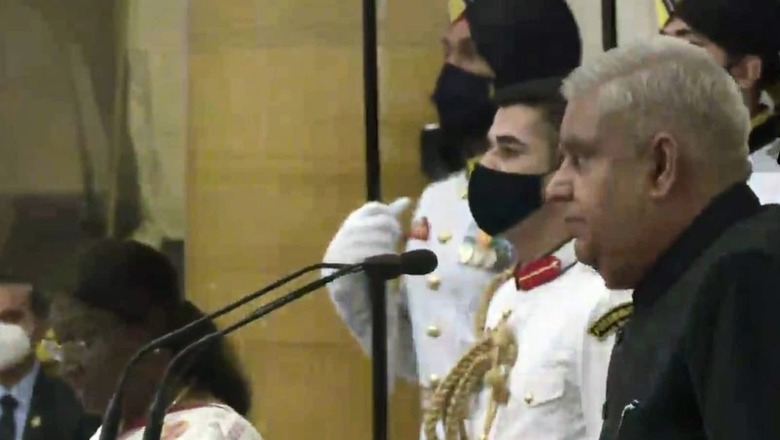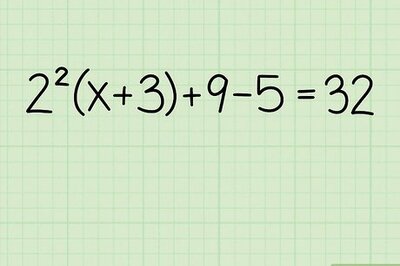
views
Former West Bengal governor Jagdeep Dhankhar was on Thursday sworn in as the 14th Vice President of India. President Droupadi Murmu administered the oath to Dhankhar (71) in a brief ceremony at the Rashtrapati Bhavan.
Dhankhar took the oath in Hindi in the name of god. Prime Minister Narendra Modi and Dhankhar’s predecessor M Venkaiah Naidu were among the dignitaries present at the ceremony.
One of the key roles of Jagdeep Dhankhar, who took oath as the 14th Vice President of India on Thursday, will be to chair Rajya Sabha, the Council of States. second-highest constitutional office in the country, the vice president also acts as the President in case of death, resignation or removal of the incumbent, until a new president is elected.
The vice president serves a five year term but can continue to be in office, irrespective of the expiry of the term, until the successor assumes office. During this period, the vice president has all the powers, immunities and privileges of the president and receives emoluments and allowances payable to the president.
According to the official website of the vice president, the Constitution is silent on who performs the duties of the vice president, when a vacancy occurs in the office before the expiry of the term, or when the V-P acts as the President of India. The only provision in the Constitution is with regard to the vice president’s function as the chairperson of Rajya Sabha, which is performed, during the period of such vacancy, by the Deputy Chairperson of Rajya Sabha, or any other member of the upper house authorised by the President of India.
The vice president can resign from his office by submitting his resignation to the President of India. The resignation becomes effective from the day it is accepted. The vice president can be removed from office by a resolution of Rajya Sabha, passed by a majority of its members at that time and agreed to by Lok Sabha. A resolution for this purpose can be moved only after a notice of at least a minimum of 14 days has been given of such an intention.
The vice president is the ex-officio chairperson of Rajya Sabha and does not hold any other office of profit. During any period when the V-P acts as, or discharges the functions of the president, he does not perform the duties of the office of the chairperson of the Council of States and is not entitled to any salary or allowances payable to the chairperson of Rajya Sabha.
Read the Latest News and Breaking News here


















Comments
0 comment